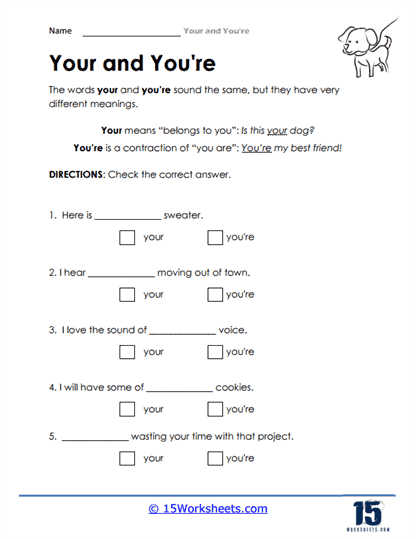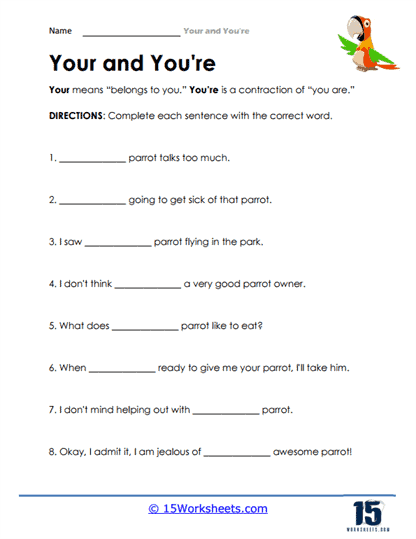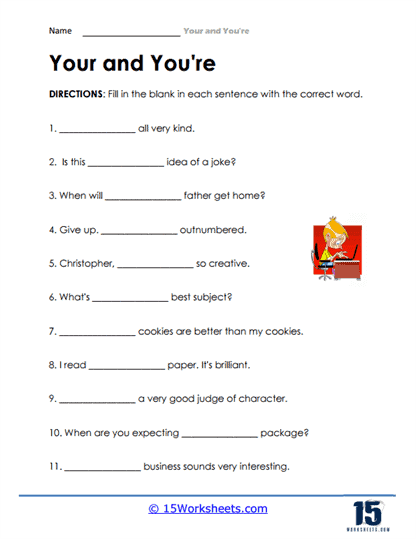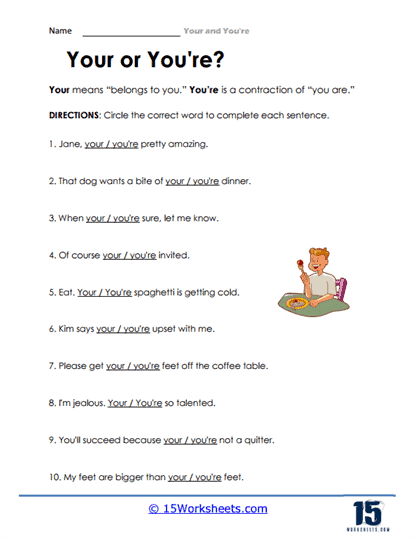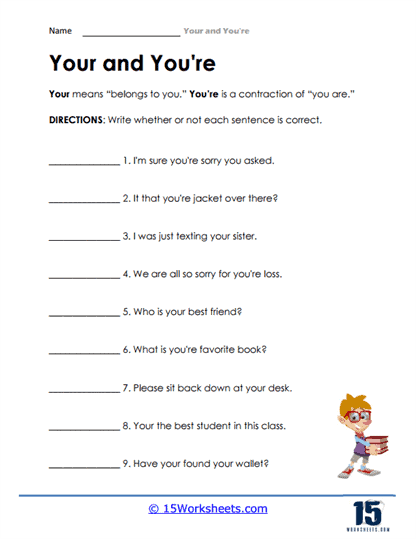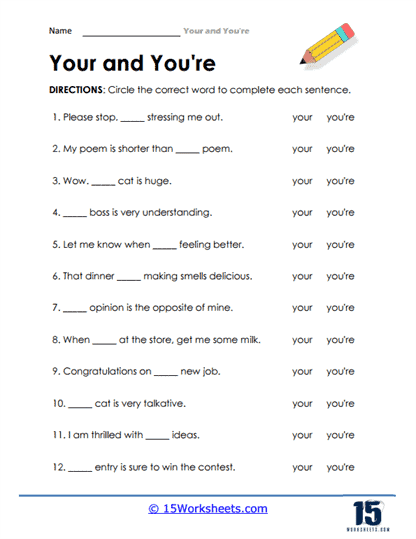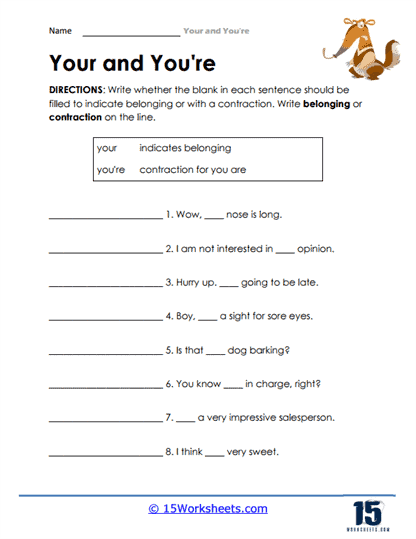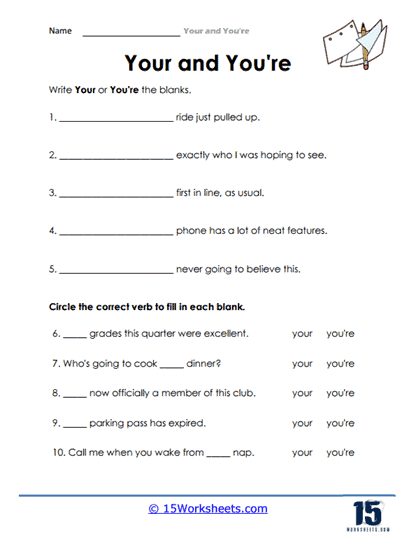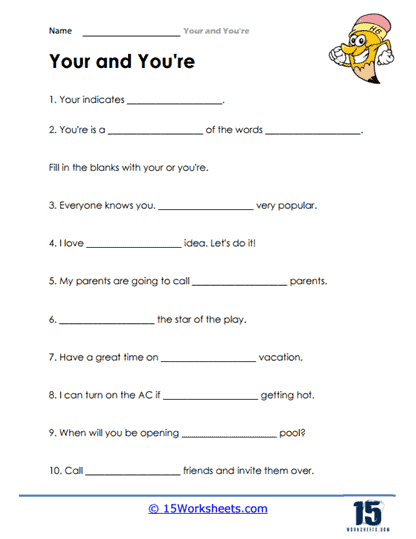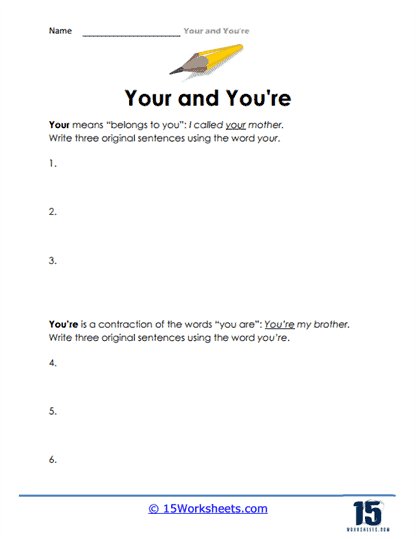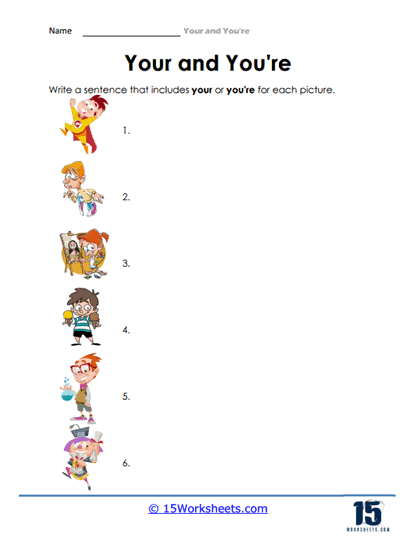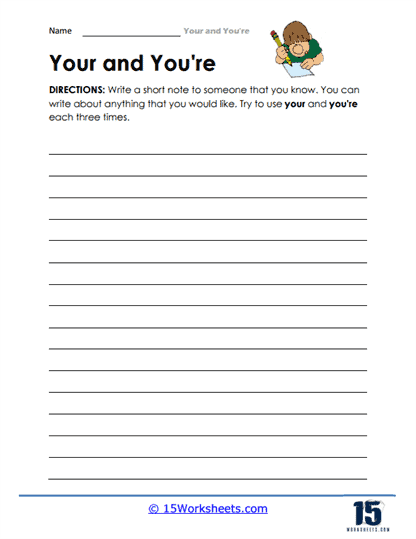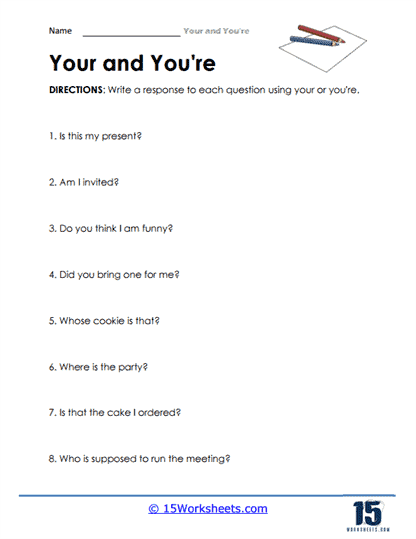Your vs. You're Worksheets
All About These 15 Worksheets
These Your vs. You’re worksheets are a great tool for students to practice and reinforce their understanding of the correct usage of this commonly confused pair of words. When it comes to these two words, it’s important for students to understand the difference between possessive and contraction forms.
The first worksheet on this collection of free worksheets includes a brief explanation of the difference between “your” and “you’re,” followed by example sentences to show it. This is a great starting point for teachers who wish to introduce the topic to their students before moving on to the rest of the worksheets that may require further mastery on the topic.
The exercises in these worksheets include fill-in-the-blank exercises, rewriting activities, and writing prompts where students have to create sentences using the correct form of “your” or “you’re.” Through these worksheets, students will:
- Understand the difference between “your” and “you’re” and know when to use them in sentences of various contexts;
- Transform sentences to reflect the correct usage of “your” and “you’re”;
- Write their own sentences using “your” and “you’re” correctly;
- And respond to writing prompts while demonstrating perfect understanding of the difference between “your” and “you’re”.
By providing students with a variety of exercises, these worksheets can help students improve their understanding of the correct usage of these two commonly confused words, and enhance their writing and communication skills.
Your vs. You’re and Common Errors
“Your” and “you’re” are two commonly confused words in English. Here is an explanation of the difference between the two:
- “Your” is a possessive pronoun that indicates ownership. It is used to show that something belongs to the person being addressed. For example: “Is this your backpack?” In this sentence, “your” indicates that the backpack belongs to the person being addressed.
- “You’re” is a contraction of “you are”. It is used to describe something that the person being addressed is doing, feeling or thinking. For example: “You’re going to love this surprise!” In this sentence, “you’re” means “you are” and indicates that the person being addressed will enjoy the surprise.
Common errors with “your” and “you’re” include:
- Confusing the possessive “your” with the contraction “you’re”. For example, writing “Your going to love this surprise” instead of “You’re going to love this surprise”.
- Using “you’re” when the possessive “your” is needed. For example, writing “You’re backpack is on the table” instead of “Your backpack is on the table”.
- Omitting the apostrophe in “you’re”. For example, writing “youre” instead of “you’re”.
To avoid making these common errors, it’s important to carefully consider the context in which each word is being used and to always proofread your writing first.

